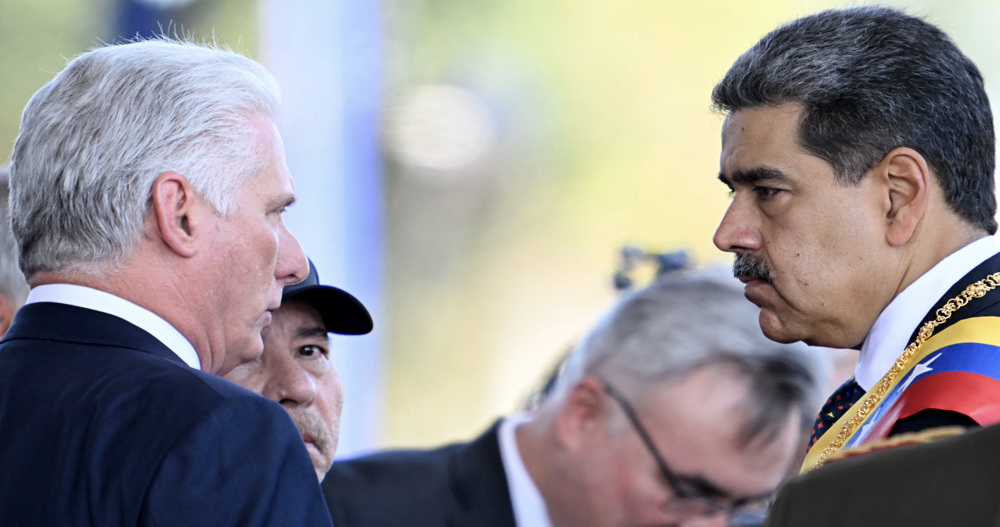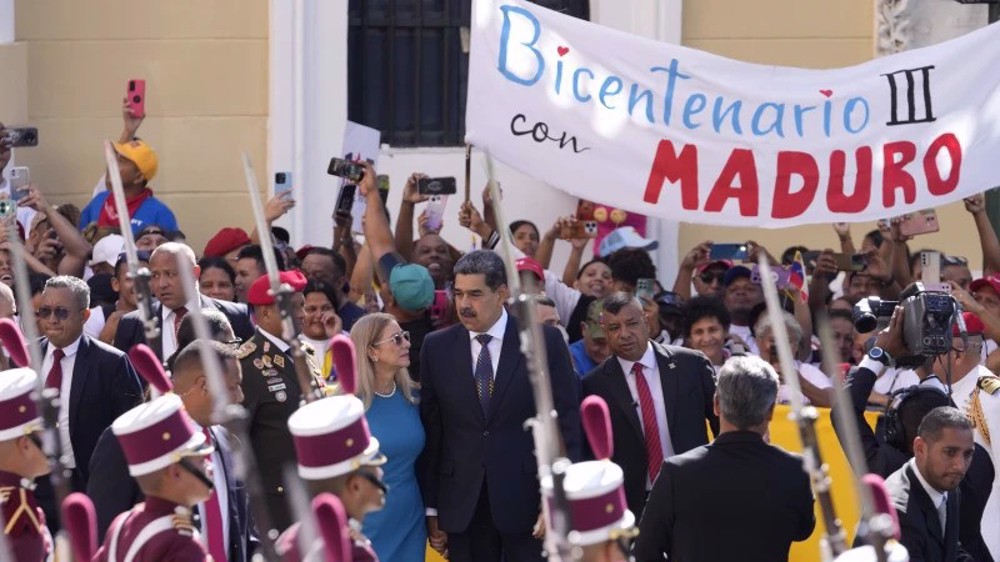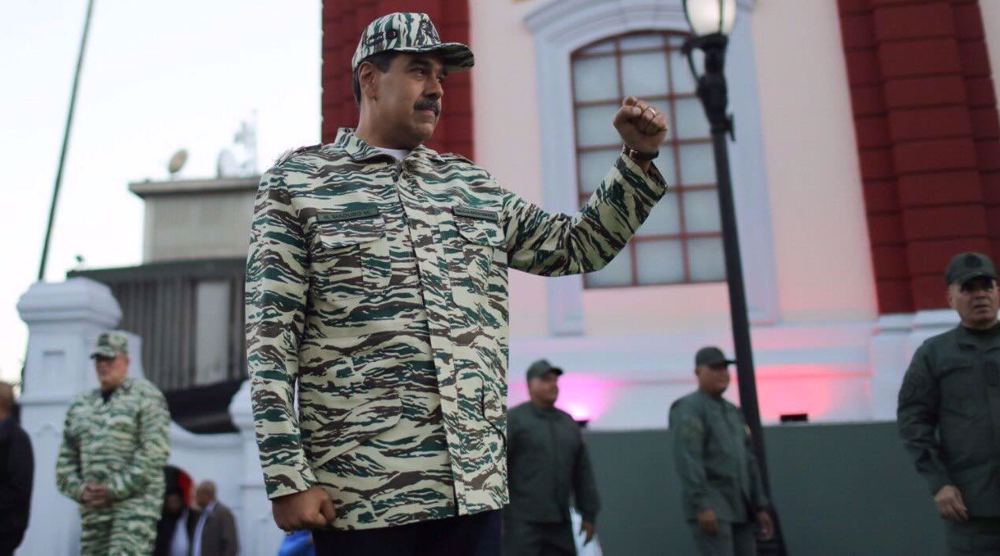Venezuelan foreign minister resigns to seek seat in planned Constituent Assembly
Venezuela’s Foreign Minister Delcy Rodriguez has stepped down from her post to run for a seat in the controversial new Constituent Assembly.
Rodriguez tendered her resignation on Wednesday. She had been foreign minister of Venezuela since December 2014.
President Nicolas Maduro was quick to offer words of praise for his close ally.
Rodriguez “truly deserves the recognition of the entire country because she has defended Venezuelan sovereignty, peace and independence like a tiger,” Maduro said. “Congratulations comrade! Job well done.”
The Venezuelan president, in a speech on state television, named the country’s ambassador to the Organization of American States (OAS), historian Samuel Moncada, as the new foreign minister.
The development came as Maduro strives to send more of his allies to the Constituent Assembly, whose election is set for July 30. First lady Cilia Flores has already announced her own bid to run for a seat in the assembly.
Maduro, whose government has faced massive protests in recent months, says the new assembly, a body with powers to rewrite the constitution and override other institutions, is a must to bring back peace to the country. The opposition, however, has already boycotted the vote, arguing that the voting procedures heavily favor the government and are aimed at keeping the ruling Socialist Party in power despite its current unpopularity.
Meanwhile, a meeting held by the 34-member OAS wound up empty-handed on issuing a formal condemnation of Caracas for its handling of the political and economic crisis in Venezuela. Another meeting, held two days earlier, had also failed to agree on a joint response to the situation in Venezuela, with a US-proposed draft resolution falling short of the three votes out of the required 23. The failure is speculated to be partly due to the Caribbean countries’ support for Caracas. Those countries are reportedly benefiting from discounted Venezuelan oil imports.

Venezuela has been the scene of nearly three months of violent clashes between anti-government protesters and security forces. It started when the Supreme Court stripped the opposition-controlled parliament of its powers in March.
The decision was later revoked, but protesters continued to take to the streets across the country against Maduro’s government. The clashes have already left at least 75 people dead and over 1,300 wounded.
Critics denounce Maduro as a “dictator,” demanding elections, the freedom of jailed activists, permits for the entry of foreign aid, and autonomy for the opposition-controlled National Assembly.
The left-wing government says the protests are incited by the Unites Stated and has accused the opposition of hiring armed gangs. The opposition, too, has said the government has been using armed groups to intimidate opponents.
Hamas thanks Iran, Resistance Front following achievement of ceasefire in Gaza
'Capitulation': Israeli officials and media concede Gaza defeat as truce unfolds
'Gaza has won': Social media users react to ceasefire with mix of relief, joy
Iran seeks South Korea’s assistance for AI, fiber-optic projects
VIDEO | Iran's 'Eqtedar' (Power) maneuver
Israel hits HTS military target in Syria for 1st time since fall of Assad
VIDEO | Press TV's news headlines
Israel has slaughtered 13,000 students in Gaza, West Bank














 This makes it easy to access the Press TV website
This makes it easy to access the Press TV website